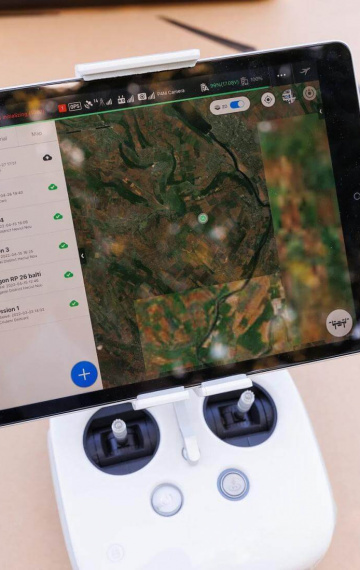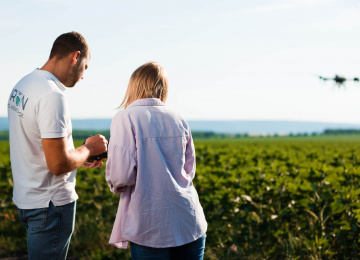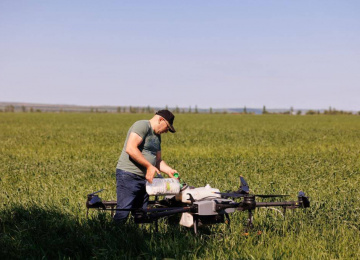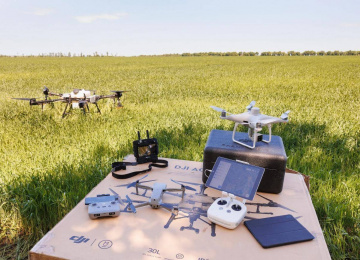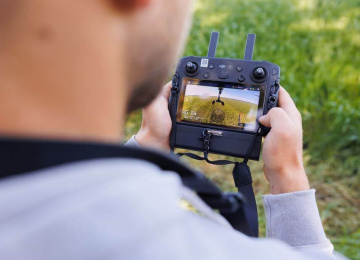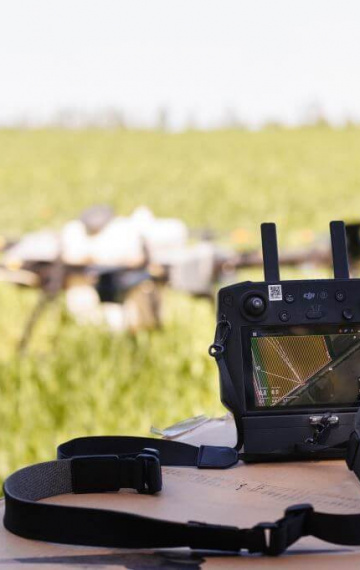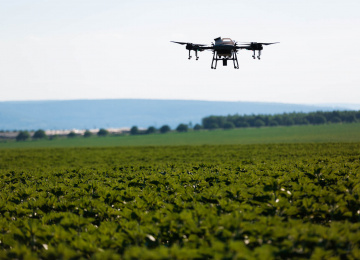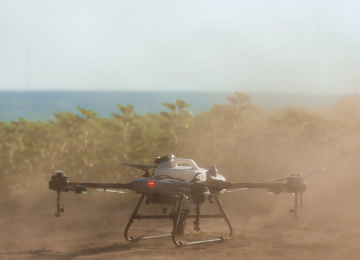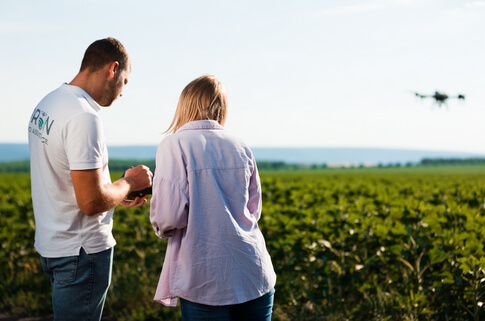
EU4Business helps Moldovan farmers go high-tech with modern agricultural drones
The information technology revolution is now feeding back into humankind’s oldest revolution, the agricultural revolution, with high-tech solutions to age-old farming problems now finding their ways to fields across the planet.
One of those helping to introduce the latest technologies to the agricultural sector in Moldova is young entrepreneur Vitalie Sacara, who in 2020, supported by UNDP Moldova and the European Union, set up the company DRON Assistance.
The company uses drones to provide intelligent, high-tech-based services to Moldovan farmers, such as pest and weed management, and mapping and monitoring of land under cultivation.
Farming with intelligence
Due to climate change and industrialization, in recent years the agriculture sector has been going through multiple transformations – there have been changes in climate and temperature, the spread of pests, and more pollution of soil, all of which have pushed farmers to look for innovative solutions. New technology that makes it possible to monitor agricultural crops from a smart-phone application is an example of how modern information technology is enabling efficient, sustainable and profitable farming.
Using drone technologies to deliver fertilizer and pesticides precisely where they are required, as well as analysis soil types, temperatures and other growing conditions, is known as precision agriculture.
Data shows that the use of such techniques is faster and more efficient: Using modern agricultural drones to treat fields with fertilizer and pesticides can be up to 40 times faster than traditional ground-based methods, and as the spraying can be precisely targeted, up 90% of liquid crop treatments and 40% of pesticides can be saved.
Word about the new techniques is getting around in Moldova – and quickly, says Sacara.
“While in 2020, 99% of farmers didn’t know about our technology, by 2021 the situation was completely different,” the entrepreneur says. “Our services are in great demand and we’ve had lots of inquiries.”
“Everything that a sprinkler does, a drone can do, too. The difference is that it takes 10 litres of water (used to dissolve herbicides) per hectare for the drone, while a tractor needs 200 litres of water to do the same job.”
Small drones vs. massive machines
Moreover, drones are a way to save on crop losses caused by the crop treatment process itself: Using new drone technologies to spray crops from above, farmers can avoid using tractors that destroy, by simply moving through the field, up to 10% of a crop. At the same time, they avoid the problem of exhaust fumes from tractors polluting the crops.
Sacara says that he wants to offer every farmer in the country the chance to take advantage of these capabilities of drones – especially to increase their productivity. He says there is no need for every farmer to have their own drones – DRON Assistance services are available to any farmer who calls their assistance centre.
The company currently owns 16 agricultural drones for spraying and two for monitoring and mapping.
With EU support in the amount of 25,000 euros, offered within the “EU4Moldova: Key Regions” Programme, the company opened a centre in the Ungheni region and purchased 3 drones.
Expanding with EU support
The EU4Moldova: Focal Regions Programme is particularly focused on promoting social entrepreneurship pilot projects that address social needs and improve the local economic environment. The total value of the grants it has made is approximately EUR 1.7 million across 75 individual grants in the Cahul and Ungheni regions of Moldova.
Using its grant, DRON Assistance is now able to expand its network of drone and operator support centres. In addition to its existing centres in Edinet in the north of Moldova and Causeni in the south, new branches will be opened in Balti, Comrat and Ungheni, giving the company coverage across central and western Moldova as well.
“We aim for our drones to be accessible to farmers throughout the country,” says Sacara.

